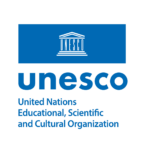UNESCO and AU’s Media and Information Literacy Course
Year of production: 2015
Image is illustrative. By Marten Bjork on Unsplash.
In the evolving knowledge societies of today, some people are overloaded with information; others are starved for information. Everywhere, people are yearning to express themselves freely and to participate actively in governance processes and cultural exchange. Universally, there is a deep thirst to understand the complex world around us.
Media and Information Literacy and Intercultural Dialogue (MILID) is a basis for enhancing access to information and knowledge, freedom of expression, gender equality, and a high standard of education in an intercultural framework. It describes skills and attitudes that are needed to understand the functions of media and other information providers in society across a variety of media formats, including those of the Internet. It encourages the value of accepting and sharing diverse cultural and religious standpoints. The course does these things in order to enable people to share knowledge and experience, learn from one another and find, evaluate, and produce information and media content on their own. In other words, MILID covers the competencies that are vital for people to engage effectively in all aspects of development.
More and more countries recognize the importance of MILID. Over 70 countries are implementing MILID-related activities in varying degrees and reach. Yet, this takes time. At present, only a handful of states have put in place national MILID-related policies and elaborated the strategies that are needed to sustain their efforts. Meanwhile, research has shown that countries with national MILID policies and strategies have more far-reaching and sustained programmes.
This open access course in MILID, which has been designed, written and offered as a partnership between UNESCO and Athabasca University, introduces the concepts of
media and information literacy and intercultural dialogue along with important issues that relate to this new set of competencies for global citizenship.
The course is open to anyone who wishes to sign in. There are 10 units addressing such concepts as media and information literacy, intercultural dialogue, freedom of expression, the multiple roles of media and advertising in contemporary life, gender representation and stereotyping in the media, challenges and opportunities for youth, and ways of engaging with new technologies for social change. If you wish to receive a certificate for taking this course, you need to achieve a grade of at least 65% overall.





